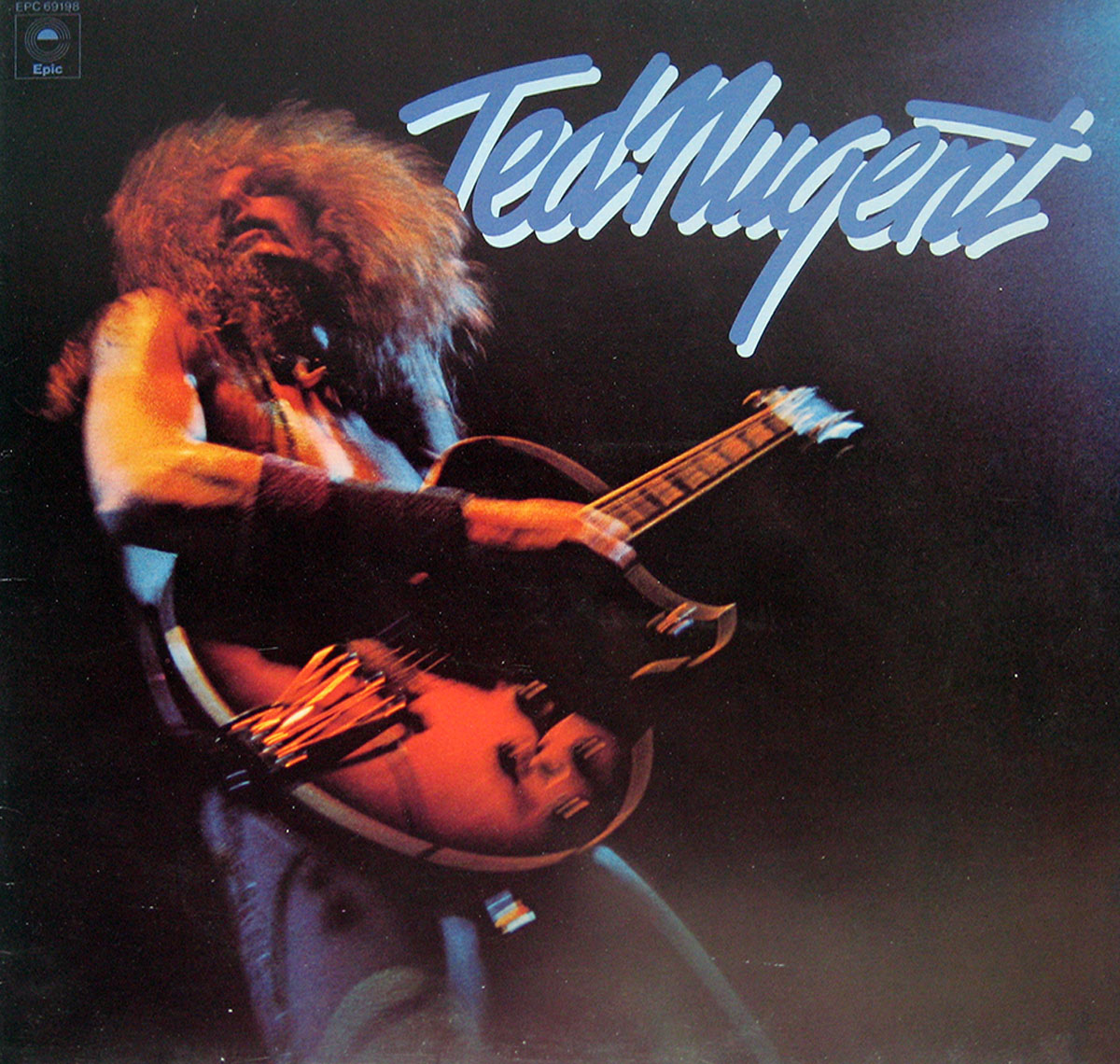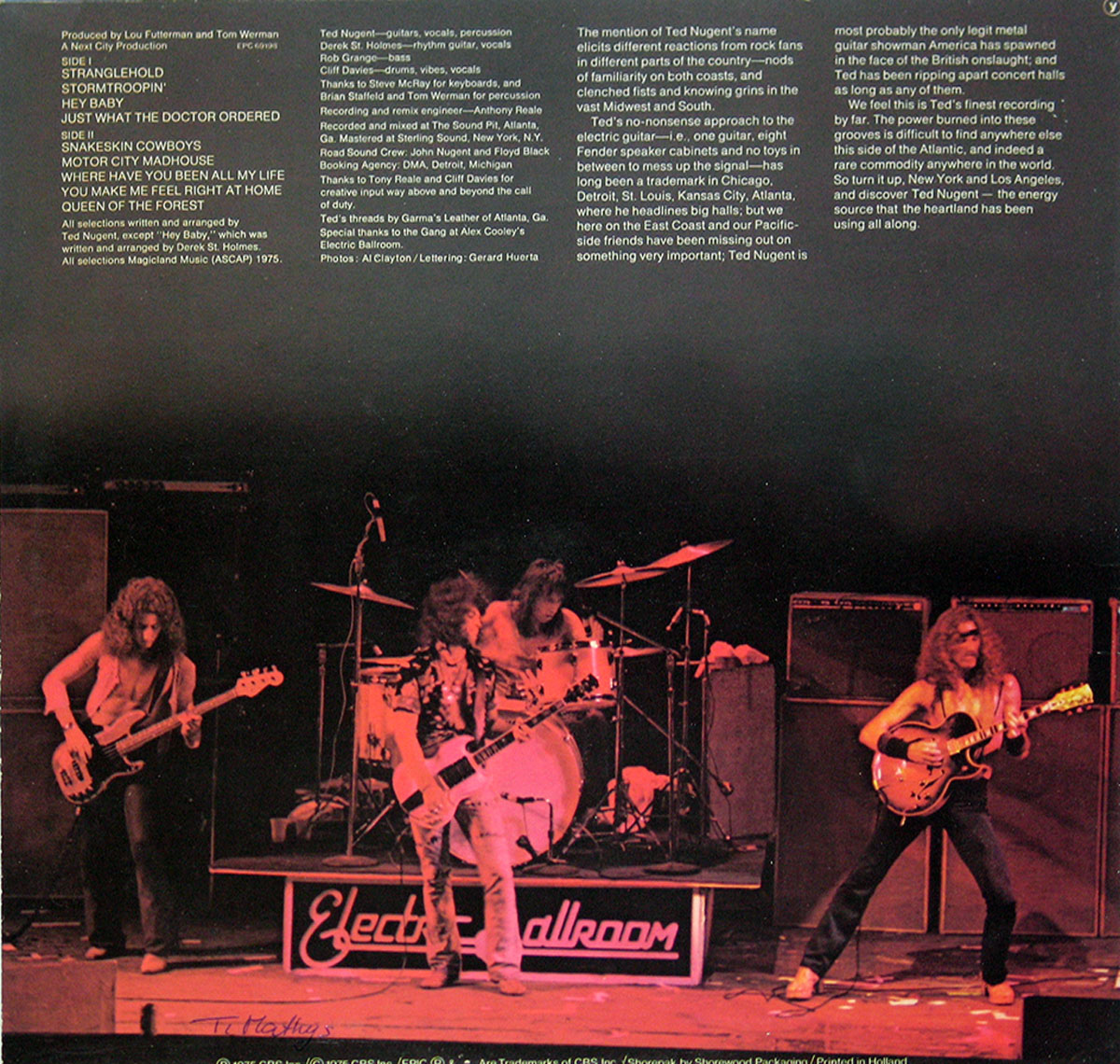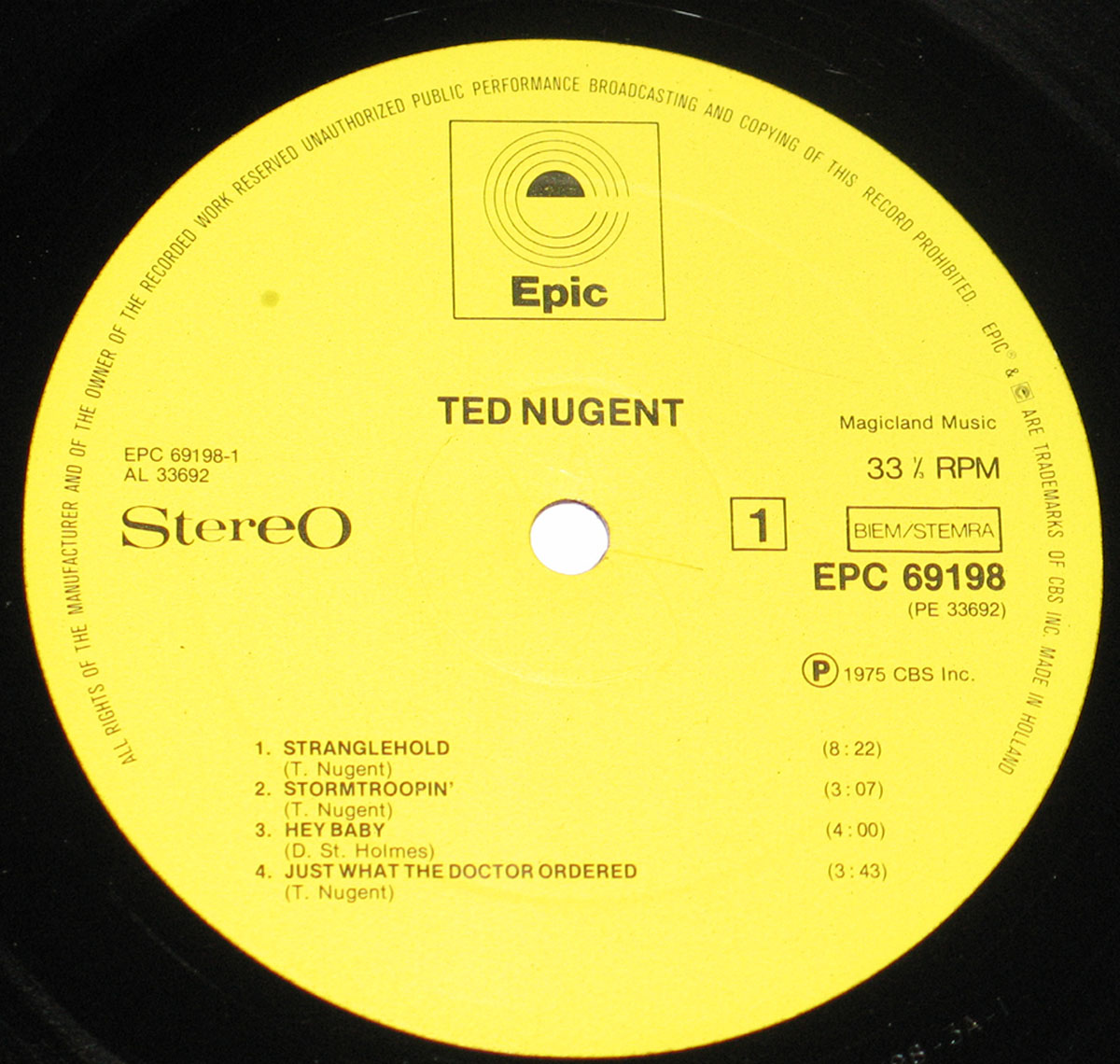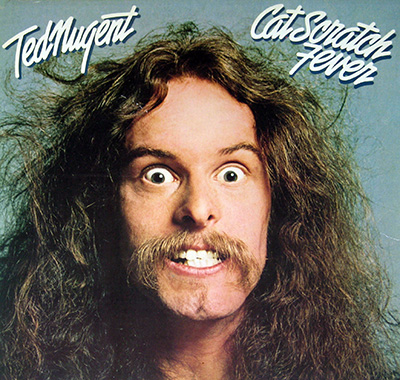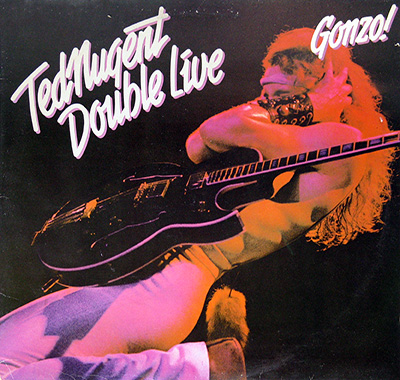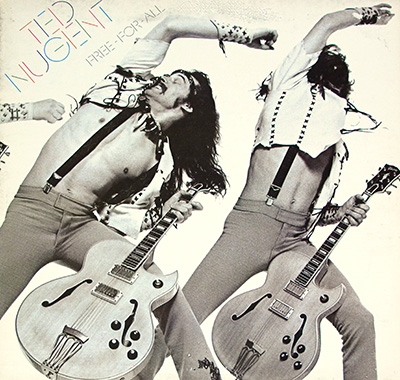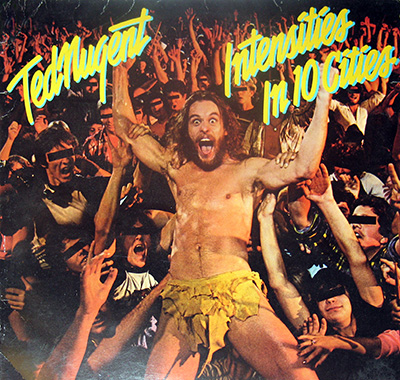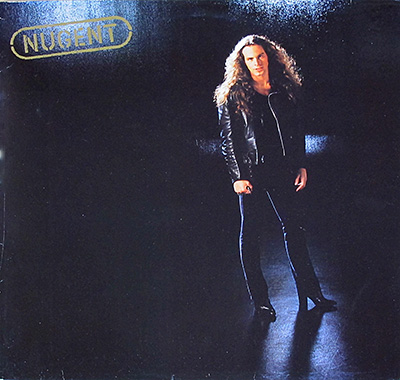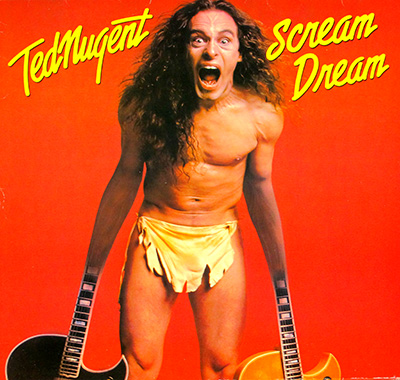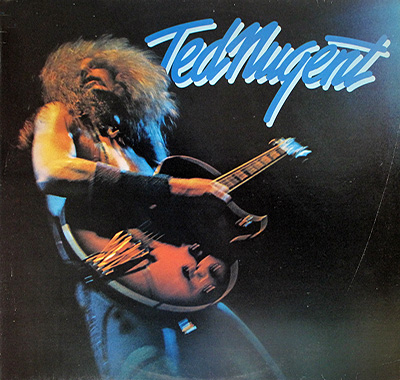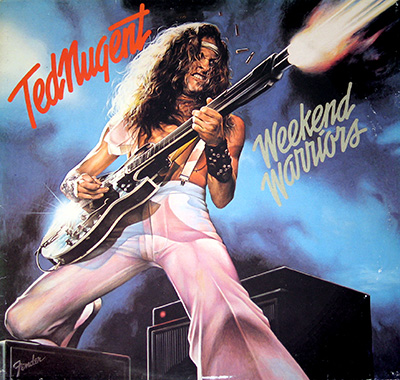High-Caliber Carnage: Ted Nugent's Self-Titled Sonic Boom Album Description:
There are albums that walk into the room, politely nod, and ask for a moment of your attention. And then there’s Ted Nugent’s 1975 self-titled debut, which kicks the door off the hinges, screams into your face, and demands you drop everything and submit to the electric altar of the almighty Gibson Byrdland. It’s not just a debut—it’s a declaration of musical war.
Motor City Meltdown
It’s 1975. The Vietnam War was drawing to a ragged, bloody close. America was limping from Nixon’s exit, and the streets were filled with disillusioned youth who’d had enough of peace, love, and LSD. Into this maelstrom walks Ted Nugent, ex-Amboy Dukes madman, with enough swagger and amplifiers to burn down an arena. His mission: crank the volume and make rock dangerous again.
The Nugent Doctrine
This record doesn’t waste time. It *pounces*. Side one detonates with “Stranglehold”, a track so hypnotic, heavy, and gloriously indulgent it practically comes with a warning label. Eight minutes of slow-burning testosterone, bluesy licks, and a solo that makes your speakers sweat. Then comes “Stormtroopin’”, a slice of proto-metal with fascist imagery and precision riffs, followed by the surprisingly smooth “Hey Baby”—vocals courtesy of Derek St. Holmes, whose melodic instincts balance Nugent’s gnarled growl.
By the time you hit “Motor City Madhouse” on side two, you understand what this album is: a glorified rampage. Nugent isn’t just playing rock—he’s hunting it with a high-powered Les Paul and a case of adrenalized ego. It’s a sonic rollercoaster powered by fuzz, fury, and a suspicious lack of brakes.
Weapons of Mass Distortion
Behind the mayhem is a surprisingly tight and capable unit. Bassist Rob Grange lays down concrete foundations. Drummer Cliff Davies, with his British rock sensibility, adds polish and rhythmic discipline to the chaos. Derek St. Holmes doesn’t just sing—he uplifts the record into melodic territory when Nugent’s six-string exorcisms threaten to melt into abstraction.
But the real string-puller here is producer Tom Werman. A man who would later sculpt the careers of Mötley Crüe and Twisted Sister, Werman shapes this raw beast of a record into something that still manages to sound clean and explosive. Recorded in an era before digital trickery, this thing *feels* alive. You can hear the air moving around the amps.
Genre: American Hard Rock, But Louder
This isn’t Southern rock. This isn’t British blues. This is pure, unfiltered American hard rock—stripped of nuance, dipped in gasoline, and lit on fire by a guy wearing a loincloth. There’s a touch of glam in the production sheen, but it’s mostly buried beneath layers of growling guitar tone and feral riffage. Nugent channels Chuck Berry, Jimi Hendrix, and a hyperactive grizzly bear into something distinctly his own.
Controversy Sells (And Screams)
Nugent himself was already courting controversy in interviews, waving guns, trashing hippies, and ranting about personal freedom. But on this record, the politics are still in the backseat. What’s front and center is a raw, unapologetic celebration of American aggression, sexual bravado, and guitar hero worship. Whether you love him or loathe him, Ted Nugent was *not* background music.
Final Verdict: Raw Power with a Michigan License Plate
The 1975 Ted Nugent debut is a rock & roll heat-seeking missile, locked on your brainstem and armed with unapologetic riffs, arena-sized bravado, and a total lack of subtlety. It’s messy, loud, occasionally absurd—and completely essential. Not for the faint of heart or fans of gentle introspection. But for the rest of us? It’s a goddamn electric sermon.
